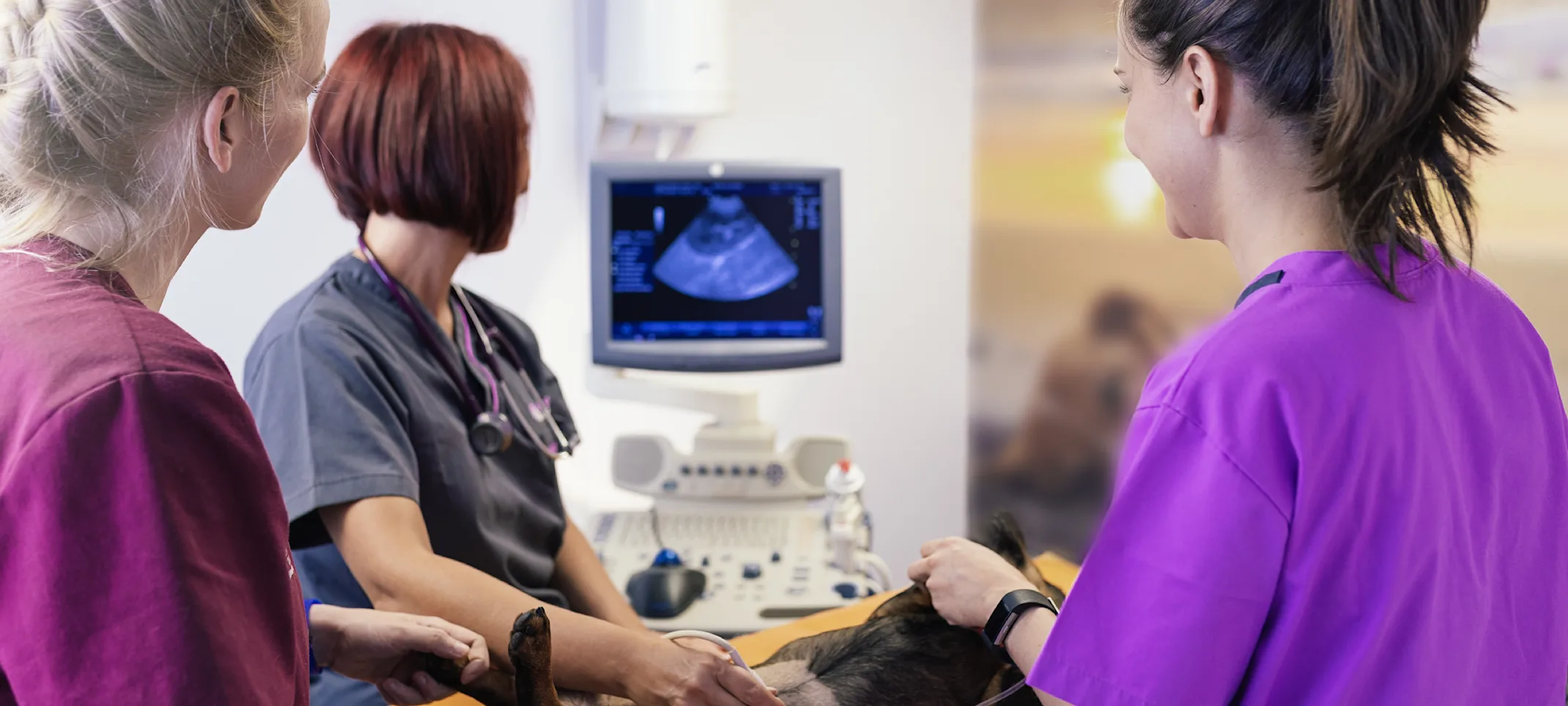Plessis Veterinary Hospital
Diagnostic Ultrasounds
An ultrasound is a highly useful tool when evaluating heart conditions, internal organs, cysts and tumours. We can support our clients in gaining access to ultrasound diagnostic services.

Why would my pet need an ultrasound?
A veterinary ultrasound is an invaluable resource for evaluating heart conditions, and abdominal organs and assists in the evolution of any cysts and tumors that may be present. Many times, x-rays will be utilized in combination with an ultrasound as they reveal the size, dimension, and position of the organ. With the ability for real-time monitoring, ultrasounds are also utilized for pregnancy diagnosis and developmental monitoring. Ultrasound is particularly useful in the assessment of the urinary system and screening for bladder stones, and masses.
When would my pet get an ultrasound test?
An ultrasound is excellent at evaluating your pet's internal organs. An ultrasound is usually recommended when our doctors find abnormalities in bloodwork, urinalysis, or x-rays. Ultrasonography is also excellent in monitoring disease processes.
How does an ultrasound test work?
Ultrasound equipment directs a narrow beam of high-frequency sound waves into the area of interest. The sound waves either transmit through, reflect, or absorb in the tissues that they encounter. Any ultrasound waves that are reflected will return as echoes and convert into an image that is displayed on the monitor, giving a 2-dimensional image of the tissues under examination. With the ability to obtain real-time information, outcomes can often be determined immediately.
The exam is completely painless and extremely safe. Light sedation may be used to help the patient lie comfortably while the scan is being performed. Your pet may need to be shaved in the area of interest, as veterinary ultrasound images are of better quality if they have complete contact with the skin.
